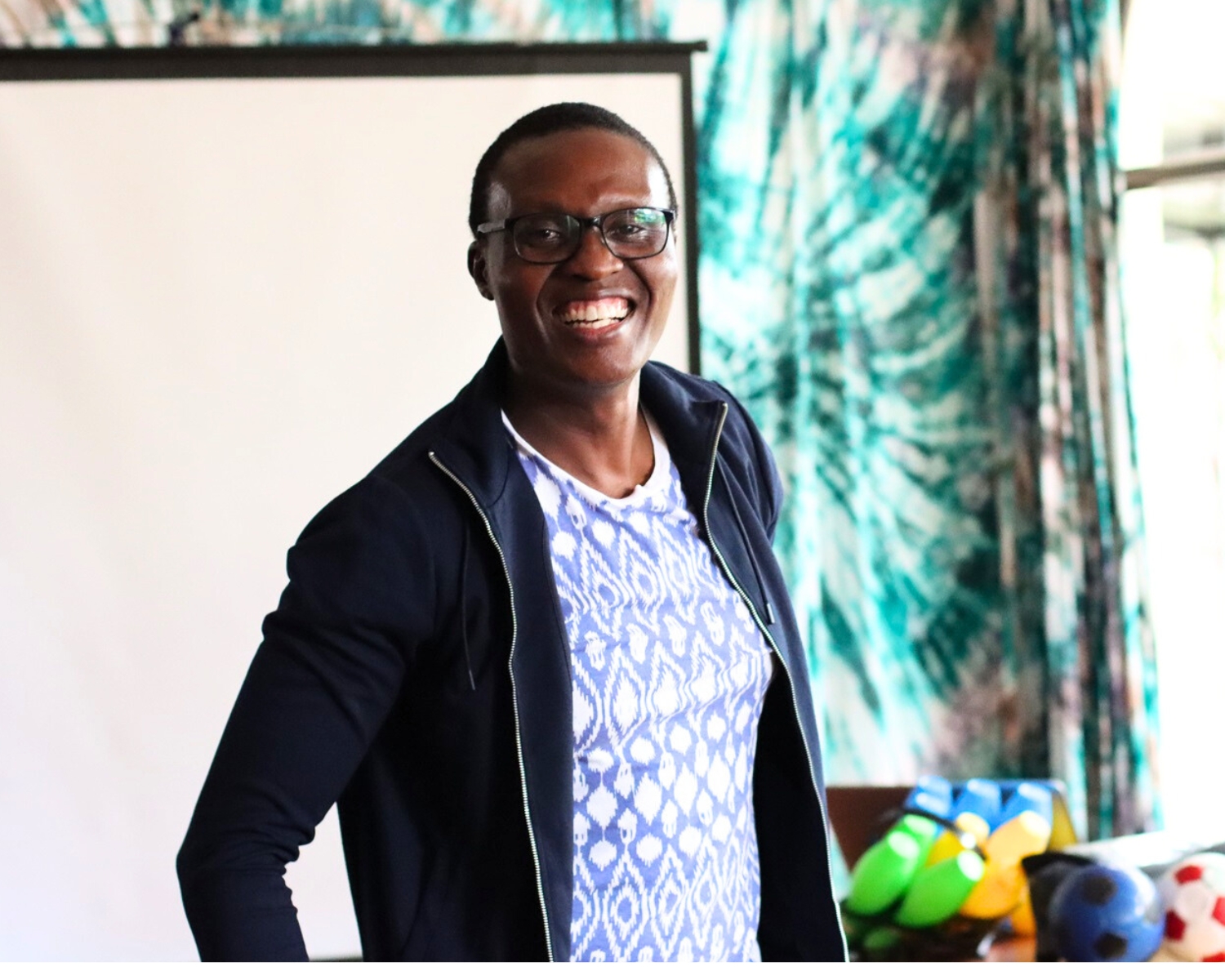Compassionate Careers: A Q&A with RefuSHE's Psychosocial Counsellor
In honor of Mental Health Awareness Month, we are pleased to feature an interview with one of RefuSHE’s Psychosocial Counselors. Duncan Ogendi has worked with RefuSHE for five years and is an integral part of our Mental Health Department. Check out his Q&A below and tips for staying mentally well!
1. Tell us about yourself and your role at RefuSHE.
I'm Duncan Ogendi, a psychosocial counselor at RefuSHE. With over 15 years under my belt, I've supported a diverse range of clients. My journey at RefuSHE began in 2015, back when it was Heshima Kenya. Mental health support was limited back then, and I'm proud to say I played a part in building this crucial department. Working with refugee communities, especially trauma clients, was a new experience. Though initially challenging, seeing the resilience of these young girls fueled my own.
2. What is it like working with the refugee women and girls at RefuSHE?
Returning in 2021, I was thrilled to see the growth of RefuSHE's mental health department. Before, resources were limited, so we mainly offered community talks. But being back in the field reminded me just how much these women and girls need us. The war's impact on their mental health is undeniable. Seeing them receive therapy and their lives improve is incredibly uplifting.
There's been a shift in the girls I serve. In 2015, most were fresh escapees from war, battling raw trauma. Today, many are born here in Kenya or arrived very young. Their challenges are more social in nature. We therefore conduct thorough screenings to tailor our approach and ensure each girl's specific needs are met.
3. What happens in a counselling session? Is it just talking?
Counselling is talk therapy, but it's much more. I observe a client's body language and nonverbal cues to understand their emotions. It's a holistic approach that involves all aspects of communication. Therapy empowers clients with the tools and techniques they need to navigate their challenges.
4. How do you ensure cultural sensitivity when working with such diverse groups?
Having worked with varied cultures from the beginning has been invaluable. Culture is not just the traditional aspect, but also includes the self-perception of a client. I strive to be culturally sensitive, offering support without compromising their traditions.
5. What's the most rewarding aspect of your job?
Witnessing my clients' progress is the ultimate reward. Sometimes, you might feel like you're making small strides, but seeing their transformation over time is incredibly encouraging. It's a constant reminder of the impact we make.
“Witnessing my clients’ progress is the ultimate reward. Sometimes, you might feel like you’re making small strides, but seeing their transformation over time is incredibly encouraging. It’s a constant reminder of the impact we make.”
6. What's the most challenging aspect?
Hearing their stories can be emotionally taxing. As a counsellor, it's crucial to be present and supportive, which means being prepared for difficult realities. Stories about children are especially tough, but time has helped me navigate these challenges.
7. Can you share a success story?
One young woman in our program had a rough start. I helped her through a "Best Interest Determination" process and provided therapy. Today, she has resettled successfully and is a thriving model, defying the odds of her past. Another success story involves young mothers who were victims of defilement and rape. Seeing them accept their children and move forward is truly uplifting. Knowing I have helped them change their perspective and overcome trauma is incredibly inspiring.
Duncan’s top 3 mental health tips in honor of Mental HEALTH Awareness Month:
1. Move your body intentionally: Regular exercise is a powerful tool for managing stress and anxiety. Scheduling walks, jogs, breaks, or even just stretching throughout the day can significantly improve your mood and overall mental health. Taking breaks between work allows your mind and body to de-stress and refocus, leading to increased productivity and better emotional regulation.
2. Body scan: Take a moment each day to check in with yourself. Notice any areas of tension in your body. These can be signs of built-up stress. Once you identify these areas, focus on relaxation techniques to release the tension and calm your nervous system.
3. Seek help early: Don't wait until you're overwhelmed to seek help. A therapist can equip you with tools and strategies to manage stress, cope with difficult emotions, and build resilience.

